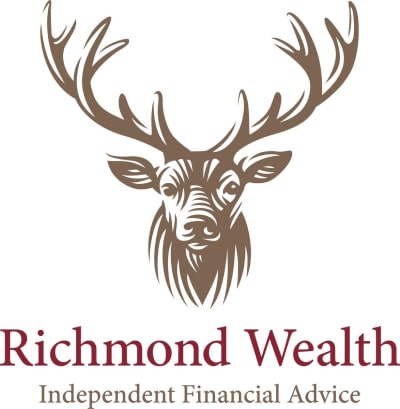Investments
We can help to manage your investmentsYour Attitude to Investment Risk
All investors will have differing attitudes towards risk.
Investing cash for improved returns over the longer term most likely means higher risk, and it is important to consider your risk profile carefully.
It is important to understand the possibility of losing money, and the likelihood of variations in returns each year, and it is vital to have an understanding of your personal tolerance for risk before investing your money.
In order to establish an investment strategy which suits your risk profile we will undertake a risk profiling exercise, before making any recommendations.
This would take the form of a questionnaire designed to give us an understanding of your views and expectations with regard to any monies invested.
The value of your investment can go up or down so you may get back less than your initial investment.
Your capacity for loss
Before deciding upon an appropriate risk profile we need to understand your capacity for loss. In other words we need to know what proportion of invested monies you are able and willing to lose when investing in the hope of higher returns over the longer term. If you are unable, or unwilling to accept any losses, it may be that to retain your monies in cash is the only suitable course of action.
However, if you are able to tolerate a degree of fluctuation, and / or losses, then we can look at other options that can potentially offer improved returns.
There are no guarantees when investing for higher returns and past performance is no guide to future returns. Investors must have an understanding of the potential downsides, before committing funds to any new investments.
Investing for Income
Many clients wish to receive income from their investments, either to supplement other income, or to replace lost income, for example at retirement.
Sufficient levels of income may be difficult to achieve from cash savings, particularly when interest rates are low. Furthermore, clients may not wish to see the value of their savings eroded once they begin drawing income. Clients’ need for income needs to be assessed alongside their attitude to risk and capacity for loss to determine a suitable investment strategy. We would need to look at how much income is required, how stable this income needs to be (does it need to be fixed, or can it vary) over what term is it required, and what the clients expectations are with regards to the capital value of the investments over time.
Some types of investment naturally offer more income than others, for example bonds will generally provide more income than certain equities. It is often the case that a mix of investments can help provide the income required, as well as some growth.
We can recommend portfolios that have the appropriate asset allocation to address both needs, whilst bearing in mind the client’s attitude to risk and all other relevant factors.
We will aim to construct a portfolio that would target an appropriate mix of income and growth potential, depending on the client’s circumstances and priorities.
*Capital at risk when investing.
Investment Portfolios
Investment portfolios are collections of assets, which can reduce the risk inherent in investing in stock markets by diversification, or avoiding having too many eggs in one basket.
Using extensive global research we recommend a number of collective investment portfolios, each with different aims and objectives to match varying clients’ needs.
These include portfolios that will target capital growth, income, and those that can provide both to varying degrees. We will agree with you which of these portfolios would suit you best, bearing in mind your attitude to investment risk, objectives and capacity for loss.
The typical asset allocation within these portfolios will be driven by these factors and the portfolios are reviewed regularly to ensure they remain appropriate for the underlying objectives and risk mandate.
The underlying holdings are reviewed quarterly and where appropriate we will recommend a change of fund manager, company or strategy. Annual reviews of the strategic asset allocation is undertaken alongside a review of the capital market assumptions underpinning the portfolio construction.
We have a long track record of recommending, managing and reviewing collective investment portfolios for individuals, corporates and Trustees.
*Capital at risk when investing.
Recommended Investment Funds
With extensive global research we are able to distil a list of highly rated funds which we recommend on an individual or collective basis. Each fund is selected on a forward looking basis, in that these are professional investment managers who are expected to outperform on a medium term basis. Each investment manager or team is personally interviewed and assessed against five criteria which of course includes performance and costs.
Recommended investment funds will aim to meet your financial objectives, in accordance with your attitude towards investment risk and capacity for loss. With each collective portfolio of funds we have undertaken extensive research to ensure the mandate and objectives of the funds and underlying investments (stocks and shares, bonds etc) complement one another and reduce investment risk through diversification and minimising stock overlap.
Our highly rated funds are reviewed regularly to ensure they remain suitable and that there are no concerns regarding the likelihood of future outperformance.
For our collective portfolio service or where you elect to retain us for ongoing reviews we will recommend a switch to an alternative fund when an existing holding is no longer highly rated.
The value of your investment may go up or down so you may get back less than your initial investment.
Passive or Active Investment?
There are different approaches to looking after your money once it is invested. Most clients prefer to have very little involvement in the day to day management of their money, preferring to leave this to the expertise of a fund or portfolio manager. The investment manager can then adopt either an active or a passive stance as appropriate.
Active fund managers are experts who will hand pick each of the assets within a fund or portfolio, and will monitor each of the assets on an ongoing basis, making changes as and when they see fit. They are responsible for the day to day running of the fund, and would be paid a premium for their expertise.
Passive funds simply track an index (like the FTSE 100), or a basket of companies, and the performance will more or less track that of the chosen index. Any significant out-performance (or under-performance) would not be expected.
The costs associated with passive investment are by and large significantly lower than those of active fund management.
Our approach to recommending investment funds is agnostic in these terms, in that we will recommend the fund most appropriate in the circumstances. For example, in many developed markets, such as the US, it can be difficult for an active fund manager to out perform a passive fund through skill or research. In contrast, in developing and frontier markets this is more likely.
Our collective investment portfolios may be made up of entirely passive funds, entirely active funds or in most cases a combination of both. In all cases we use highly rated funds which are more likely to deliver the expected investment returns.
*Capital at risk when investing.
ESG Investing
The consideration of Environment, Social and Governance (ESG) factors when investing is becoming increasingly popular. If you are interested in ESG investing and would like to discuss your options, call our team on 020 8133 2344.
What does it cost?
All investments come with costs whether this is the interest rate margin (the difference between savings and lending rates) charged by a bank or the legal costs associated with buying and selling a property.
Investing in collective investment funds is similar in that there are transaction costs incurred with buying and selling. There is also a management fee paid to the professional fund manager which will vary with the type of fund. Passive fund costs might be as low as 0.05% per annum in contrast with active funds which typically might be around 0.75% per annum. In addition you might incur custody and managements fees depending on the type of investment strategy adopted.
It can be difficult with some packaged products to unbundle the investment costs from the costs of operating the product.
Some of the most expensive investments can be the ones we don’t undertake and it is important to remember that cost is only one of the five criteria against which we assess individual investment fund managers.
Full disclosure of the costs for our investment service can be found in ‘Our Costs & Services’ document upon request.
Key Investor Information Documents (KIID)
Following recent developments of the model portfolios that we provide, we encourage you to read through the relevant Key Investor Information Document (KIID) which can be found in the following downloadable PDFs.
Click here to download Adventurous KIID
Click here to download Moderately Adventurous KIID
Click here to download Moderate KIID
Click here to download Moderately Cautious KIID
Click here to download Cautious KIID
If you have any queries regarding the document, please get in touch on 02895320111 or via info@richmondwealth.co.uk.
The value of your investment can go up or down so you may get back less than your initial investment.
News

Spring 2020 Newsletter – Richmond Wealth
Download our Spring 2020 newsletter here Strange days indeed As the year turned, we might have imagined that the decisive genera election result might bring some stability to 2020 after the turbulence of 2019. Some may have hoped we could turn our attention to...
How moving to a QROPS saved £330,000
Mrs Jones, a 68 year old widow, had lived and been resident for tax purposes in...
Individuals
We can provide individual tailored advice for you
Trustees
We have extensive experience in advising Trustees
Companies
We provide corporate clients with high quality timely advice
Professional Partners
We're used to working closely with other professional firms



